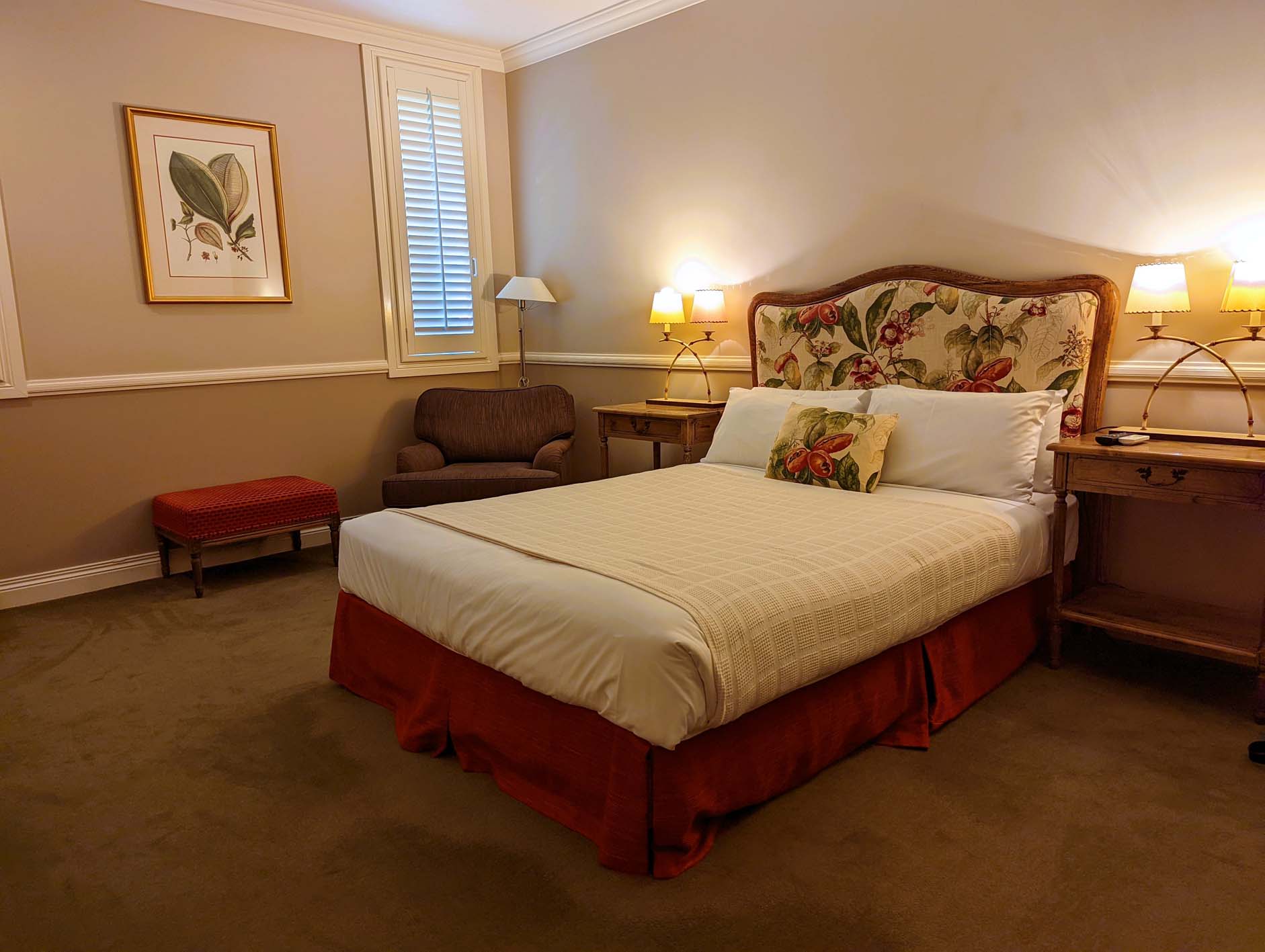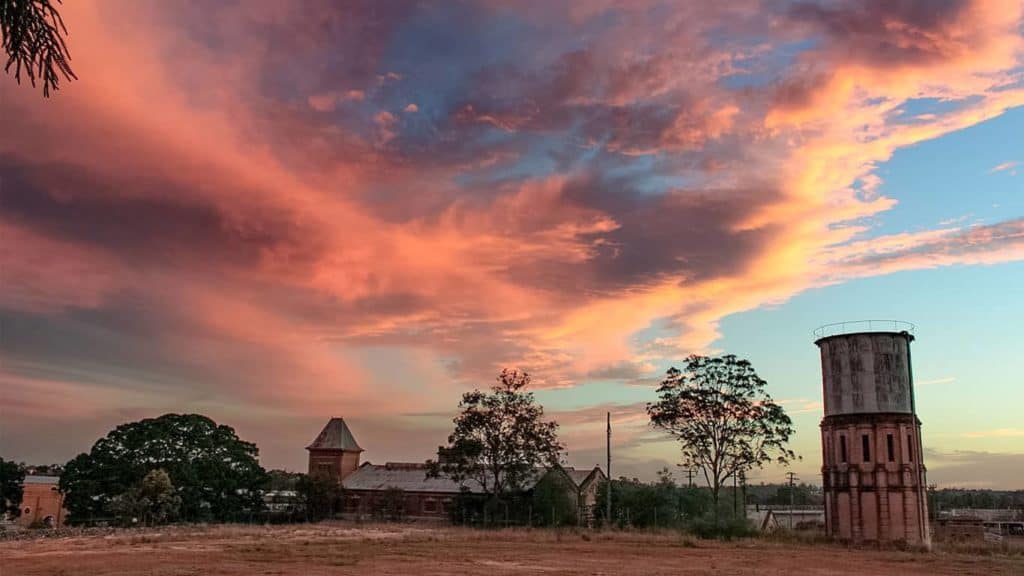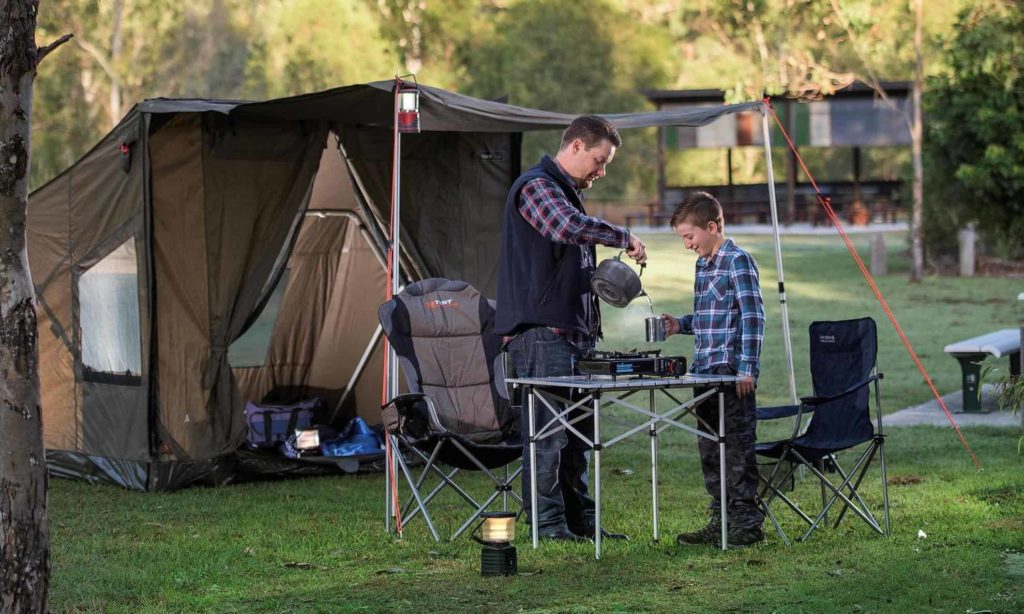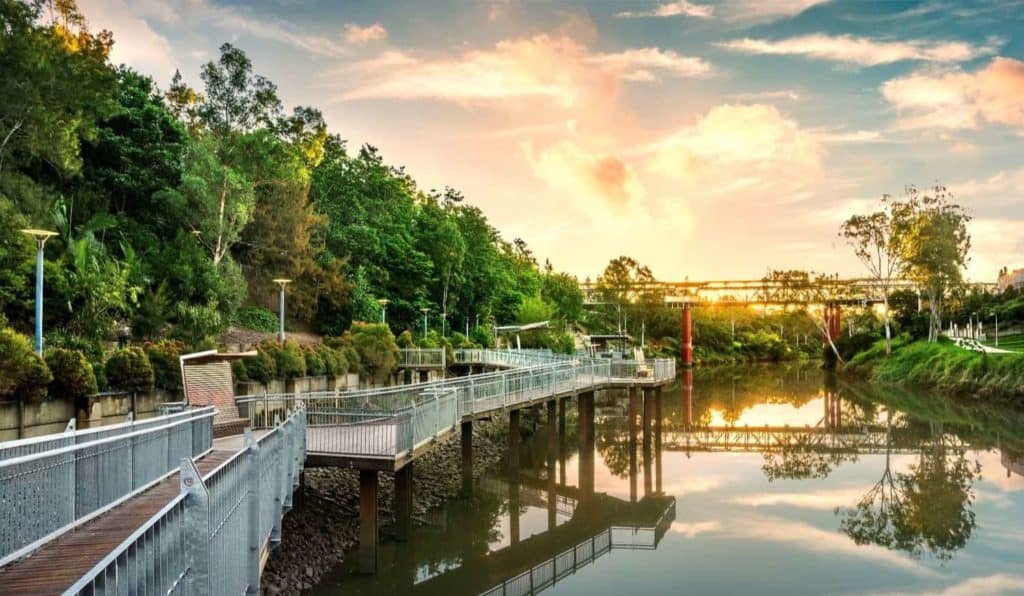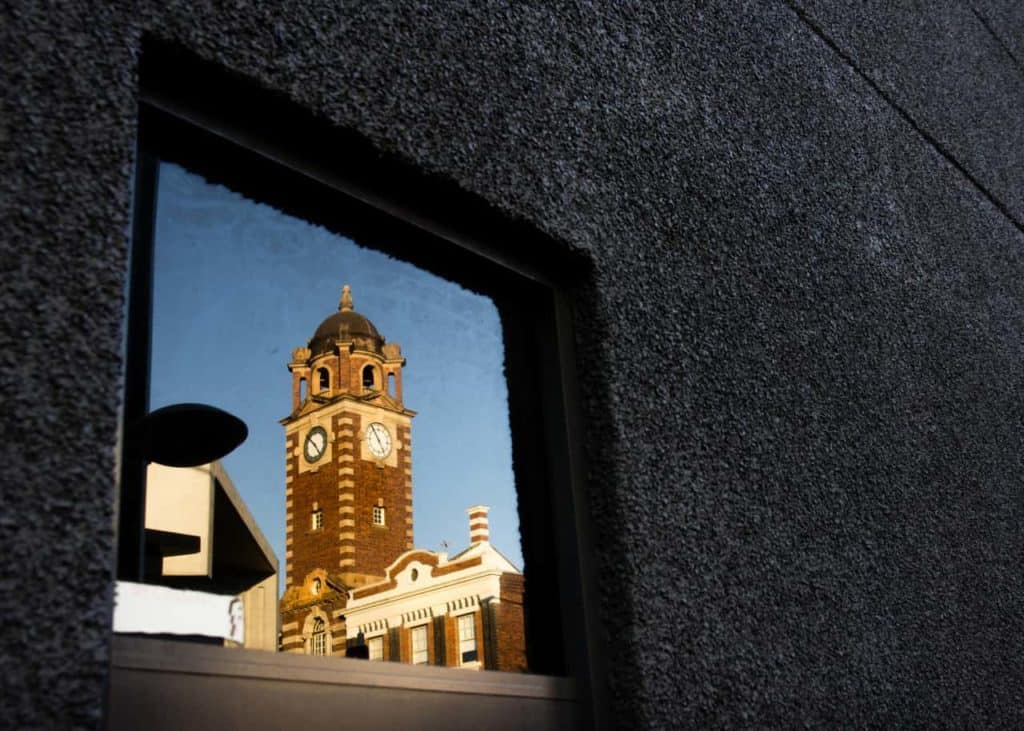There’s lots to love about tiny towns, and right on our doorstep is one of the best: Marburg.
Recognised as one of Queensland’s Top Tiny Tourism Towns in 2022, Marburg, halfway between Ipswich and Toowoomba, is in many ways a microcosm of our history.
Quintessentially Australian, its history tells a story of indigenous people who have lived on the land for thousands of years, of new settlers and adventurers with new ideas who were willing to put in backbreaking work to achieve their goals, of heartbreak and disappointment, and of community sticking together.
When we visit Marburg today, most of the buildings we see in the centre of the town were built by German immigrants who first arrived in the region in the 1860s. They settled on lands inhabited by the indigenous Jagera people, felling and milling the timber, clearing to establish grazing pastures for dairy farming and planting sugar cane. As their number of new settlers grew, a tiny school was opened in 1879 in the settlement named after the town of Marburg in their homeland.

Bernard Mahon, who owns Watercress Creek Olives and Limes (along the Warrego Hwy just down the road from Marburg) with his wife Lorraine, is one of the descendants of those settlers, a fourth-generation farmer whose ancestors settled in the area in the 1860s.
“Originally, the area between Pine Mountain and Black Mountain was all hoop pine. The loggers had been through this area,” Bernie says of the land his great-grandfather settled on, “but there was 20 years of regrowth to deal with. They blew trees up with dynamite. If they were lucky, they owned a draught horse to help plough the fields and to ride on.”
“Times were tough, work was hard, but people shared. Despite what many believe, most farmers in the area got on well with indigenous peoples. It was taken for granted that they would kill a beast now and then, after all, they needed to eat as well,” Bernie tells us.
Now Bernie and Lorraine grow olives and limes on their 14 acres, once part of the original holdings of 240 acres. As milk prices dropped, the former dairy farmers planted over 1,000 olive trees, beginning in 1998, adding over 800 Tahitian limes in 2005. Their diversification and hard work have been their key to survival. They wholesale their produce at a few specialty markets and deliver directly to retailers, also selling olives, cordial, jams, relishes, vinegars and sauces made from their products through their farm store on site.

Ewe-Nique Hobby Farm (also along the Warrego Hwy on the way to Marburg) is another small acreage with a unique selling point.
Penny and Farmer Dave open from Friday to Monday mornings and school holidays so that families can enjoy a farm encounter with alpacas, sheep, lambs, goats, geese and chickens at a very affordable price.

Ewe-Nique is the place where city meets farm, where children can pat and feed hand-reared, trustworthy animals in a rural setting, supervised by Farmer Dave. Penny bakes scones every morning for her café so parents can take a break with their children, enjoy home-baked sweets, local Awazi sheep milk ice cream from Grantham, and Somerset coffee on the café verandah. For small children, this is the perfect introduction to farm animals and a novel way to use a small farm.
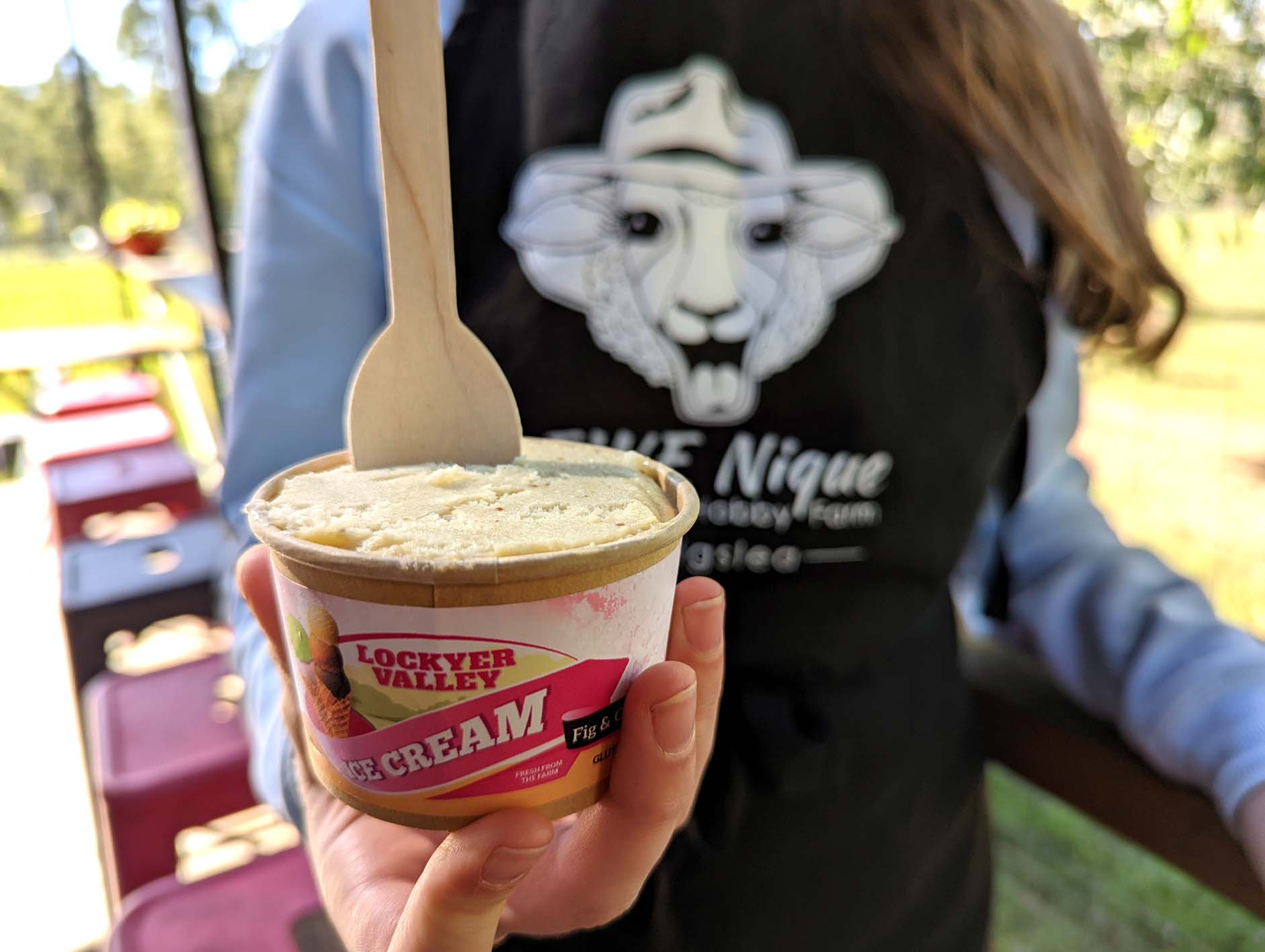
Like the Mahon’s farm, the town of Marburg, too, is much smaller than it was in its glory days of the 1900s. Today, a central core of historic buildings remains, most gathered around a central intersection creating an atmospheric historical precinct, its corners occupied by the Marburg Hotel, Scotland Yard Antiques and Marburg community buildings. It’s impossible to drive through Marburg without exploring its origins and taking photos of its picturesque townscape.
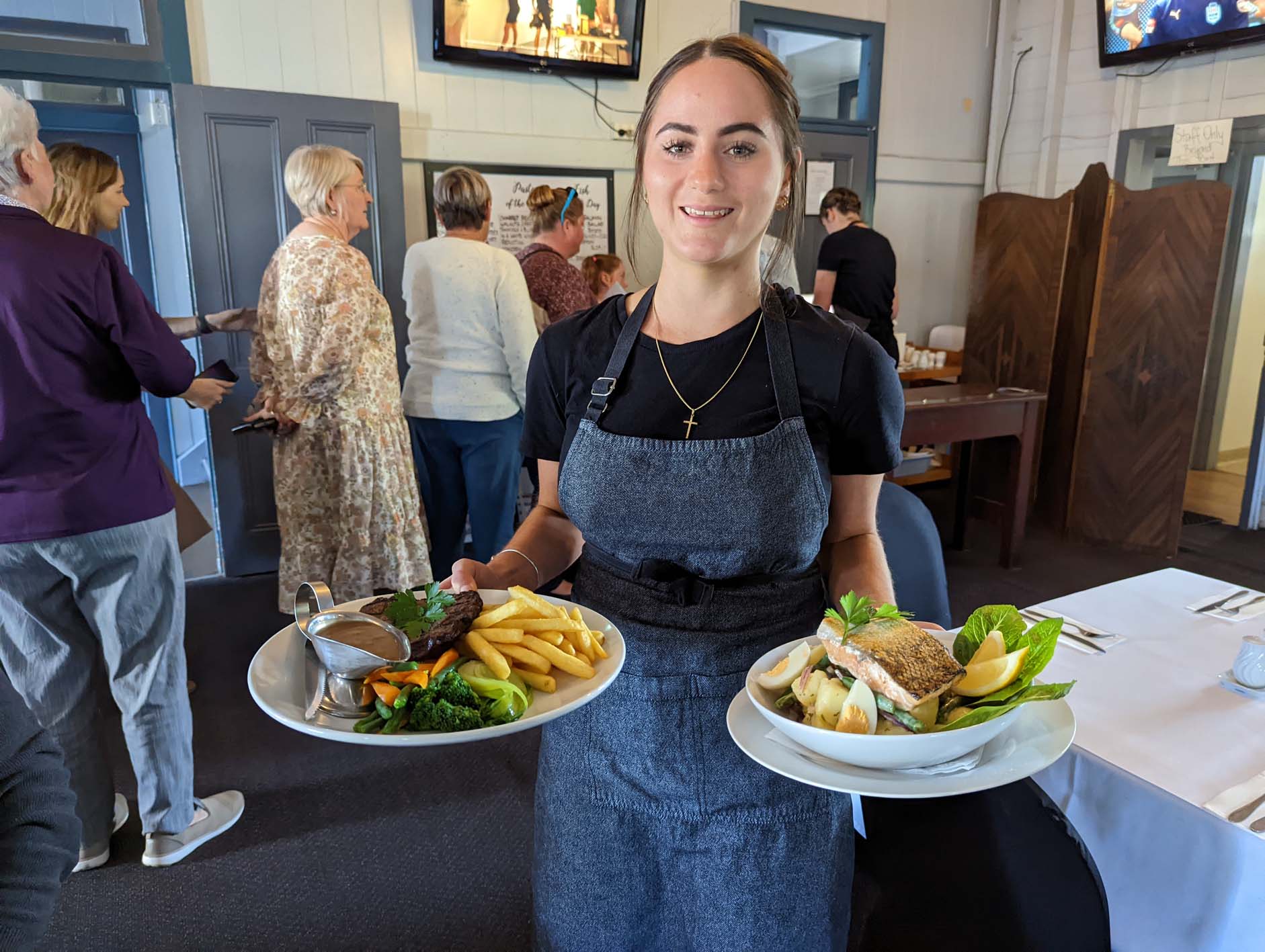
The most prominent building on the cross-section is the Marburg Hotel owned by Julie and Danny Bowden. Built in 1879, the pub is a local meeting place, its bar a place for winding down, its restaurant where family celebrations are held.
Isabella, a local teen who serves us in the restaurant, describes the pub as “quite the staple of the town”. Having lived here since pre-school age, she describes the town as “welcoming” and “community-oriented”. Surprisingly, she says that there is always something on in Marburg.

Coffee calls, so we stop at Special Branch Collective, where owner Emily Birnie tells us a bit about both her shop and her “quaint looking town”.
Special Branch Collective not only sells local Dancing Bean coffee and cakes from the local baker, but also pots, garden decorations and unique pieces from smaller suppliers, as well as plants sourced from Emily’s sister-in-law’s nursery.
“I grew up in Ipswich and Marburg, in fact my father Les has owned Scotland Yard Antiques (next-door) for 35 years,” Emily tells us. “My brother owns The Black Museum on the other side,” she adds, referring to the co-joined store where Athol Birnie sells an eclectic mix of antique and contemporary furnishings and décor; a place where you will find something you never knew you wanted.
“It’s named after the museum of crime memorabilia under Scotland Yard,” she says, enlightening us as to the link between the three shops. “So, it’s a family affair. We learned from the best!” she laughs.

With a population of only around 1,100, it’s not surprising that a core of families run local businesses.
Community rates highly in Marburg, another corner holding their historical society building and the Marburg Street Library, housed beside a brightly painted outhouse Community Reading Room and the Community Centre. Like many country towns, Marburg lost many sons to war, their memories remembered at the War Memorial on the very corner which celebrates both Marburg’s history and its community.
“I love the community in this town. There’s a great bunch of people here. The pub is the hub, but if you don’t drink, people meet at the café. We all work together and complement each other,” she says.
“People come to us,” Emily says. “Marburg is a great stopping point between Ipswich and Toowoomba. It’s just off the highway, and people stop by on car club meets, bus trips and weekend drives.”

Athol tells us that there’s a convenience factor to living in a country town: “I live here, work here, and don’t have to deal with traffic,” he smiles, a lifestyle that most can only dream of. “It’s handy to everything yet just far enough away. The town hasn’t changed a lot. It’s still nice and quiet, not over-commercialised, and even new developments are on large blocks,” he says, adding that his family choose to shop locally from a farm stall, picking up harder to get items in a small town nearby.

Another meeting point of the town is the Soul Nook Collective. Owner Taryn Ryan tells us that her family had run the hairdressing salon in Marburg for over thirty years.
“I’ve grown up here, moved away for a while, before coming back to run a business here,” Taryn says. “I’ve seen it change from nothing to a great community of small businesses.”
Leasing the 100-year-old German Baptist Church, Taryn’s small business holds community at its forefront, attracting clientele to its wellness and time out hub.
“There’s a small-town friendly vibe here,” Taryn says, “Soul Nook Collective has brought a community of like-minded people together and helped to establish friendships between those who love being in a relaxed ‘zen’ place.”
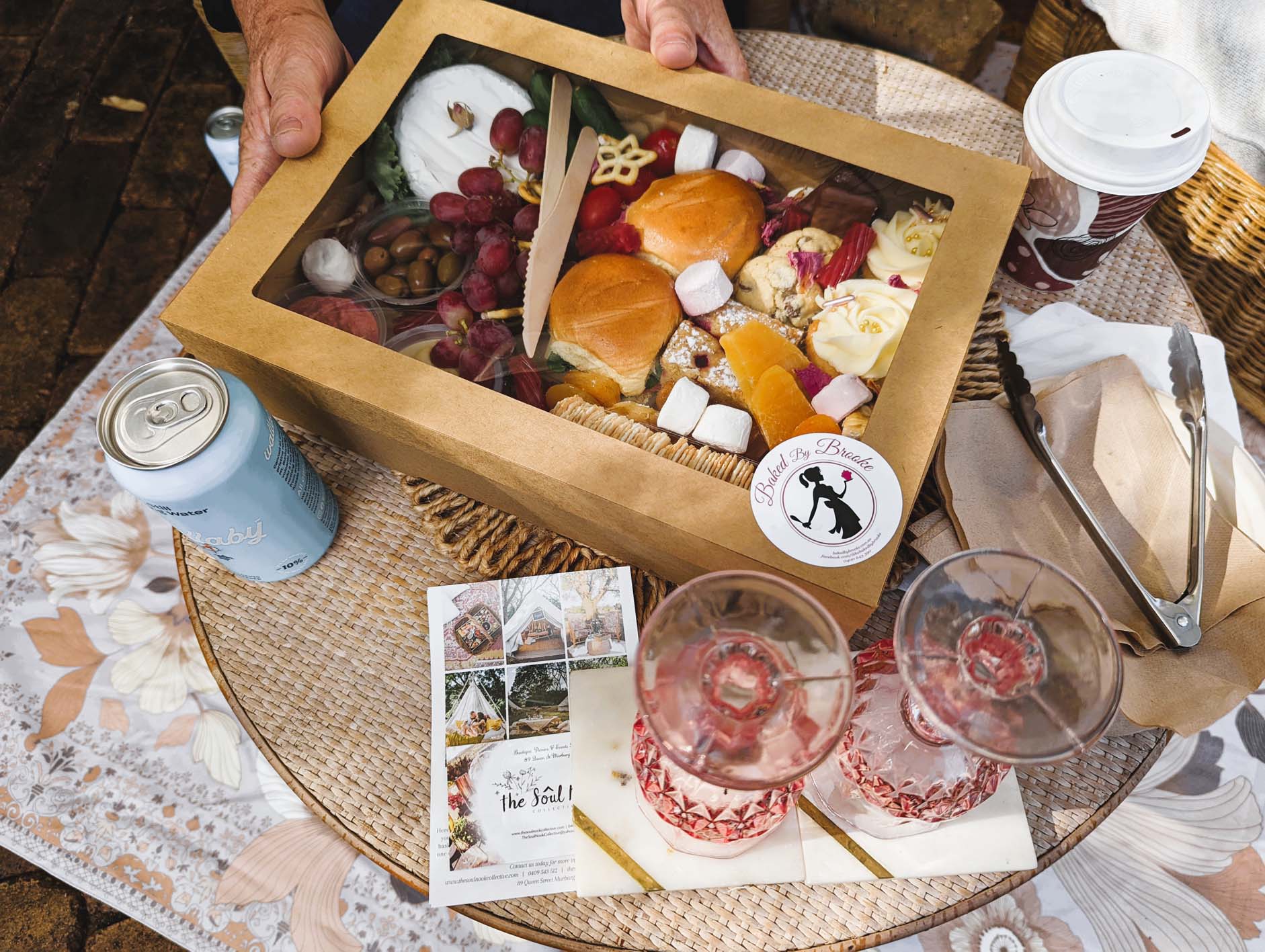
Using the church as a centrepiece boutique, gift store and coffee nook, various tents around the grounds are rented out as workshop spaces where art, gypsy vibes, yoga and meditation classes are held. With a focus on smaller intimate settings, tent spaces or styled settings can also be privately book for lunches, celebrations and events, with catering provided for two to thirty people. What Soul Nook Collective does, we believe, is to look at ‘community’ from a whole different perspective, drawing people out of their busy city lives to take time out together.
“Now we are one of the finalists of Queensland’s Top Tiny Tourist Towns, we are all so excited,” Taryn says. “We can’t wait to gather and hear the results.”
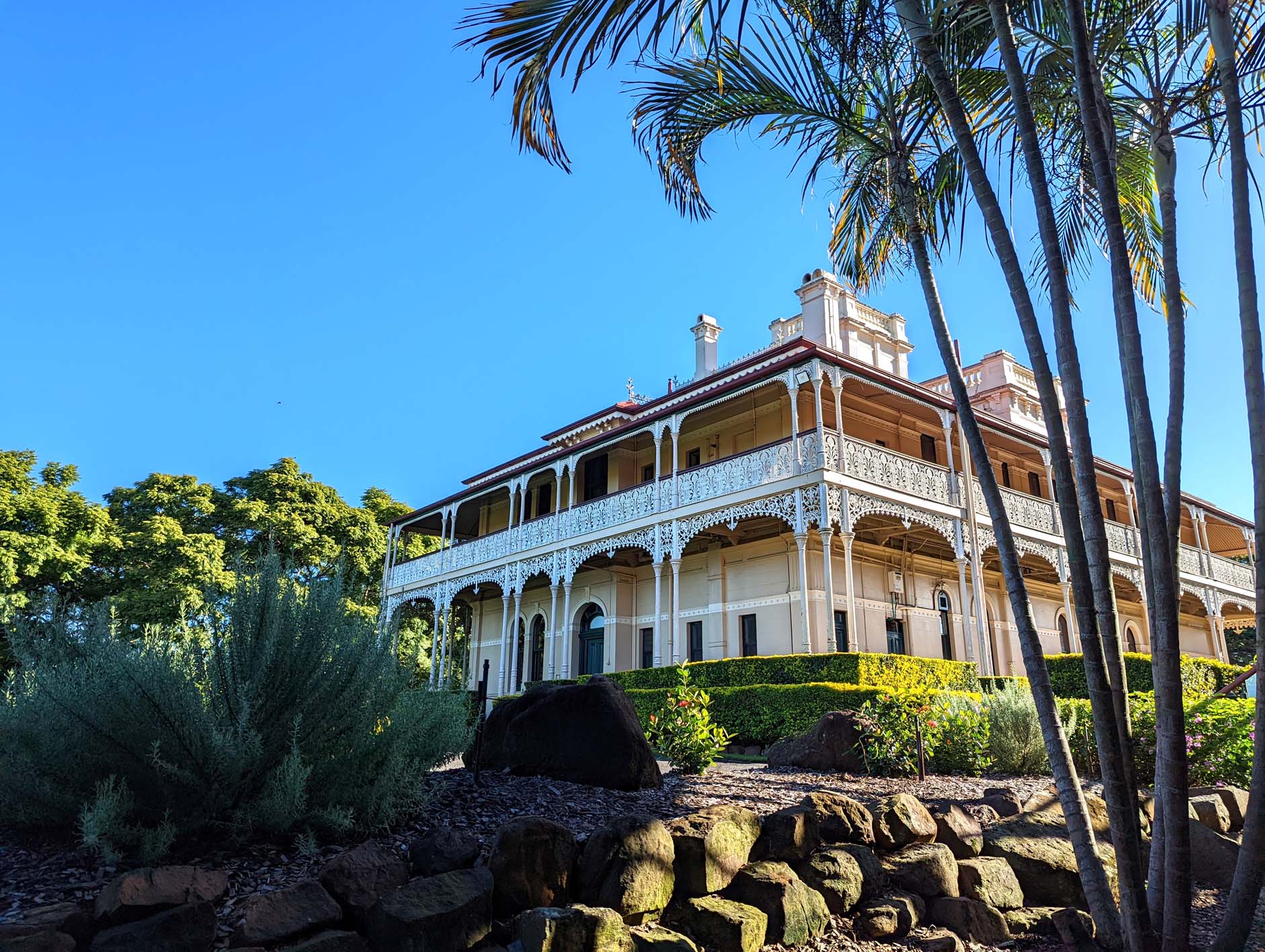
Only a few kilometres out of the town’s centre, Woodlands of Marburg is the crowning glory of the district and a destination all its own. Set majestically on top of a hill overlooking surrounding countryside, Woodlands was built on land owned since 1868 by Thomas Lorimer Smith, who had taken over his father’s considerable timber business interests when he retired.
Commissioning architect Samuel Shenton with the design, the house was built from blocks carved by hand on site and lined with cedar panelling. Completed in 1890, Woodlands stands statuesque in the midst of its magnificent 250 acres of grounds.
Smith was enthusiastic about technology, establishing a steam operated sugar mill, commissioning electricity from Woodlands to Marburg, and establishing a rum distillery.
Unfortunately, Smith’s foresight could not withstand a financial depression, and Woodlands was auctioned off in 1905. Since then, the mansion has been a rest home for missionaries, a seminary and a retreat centre.
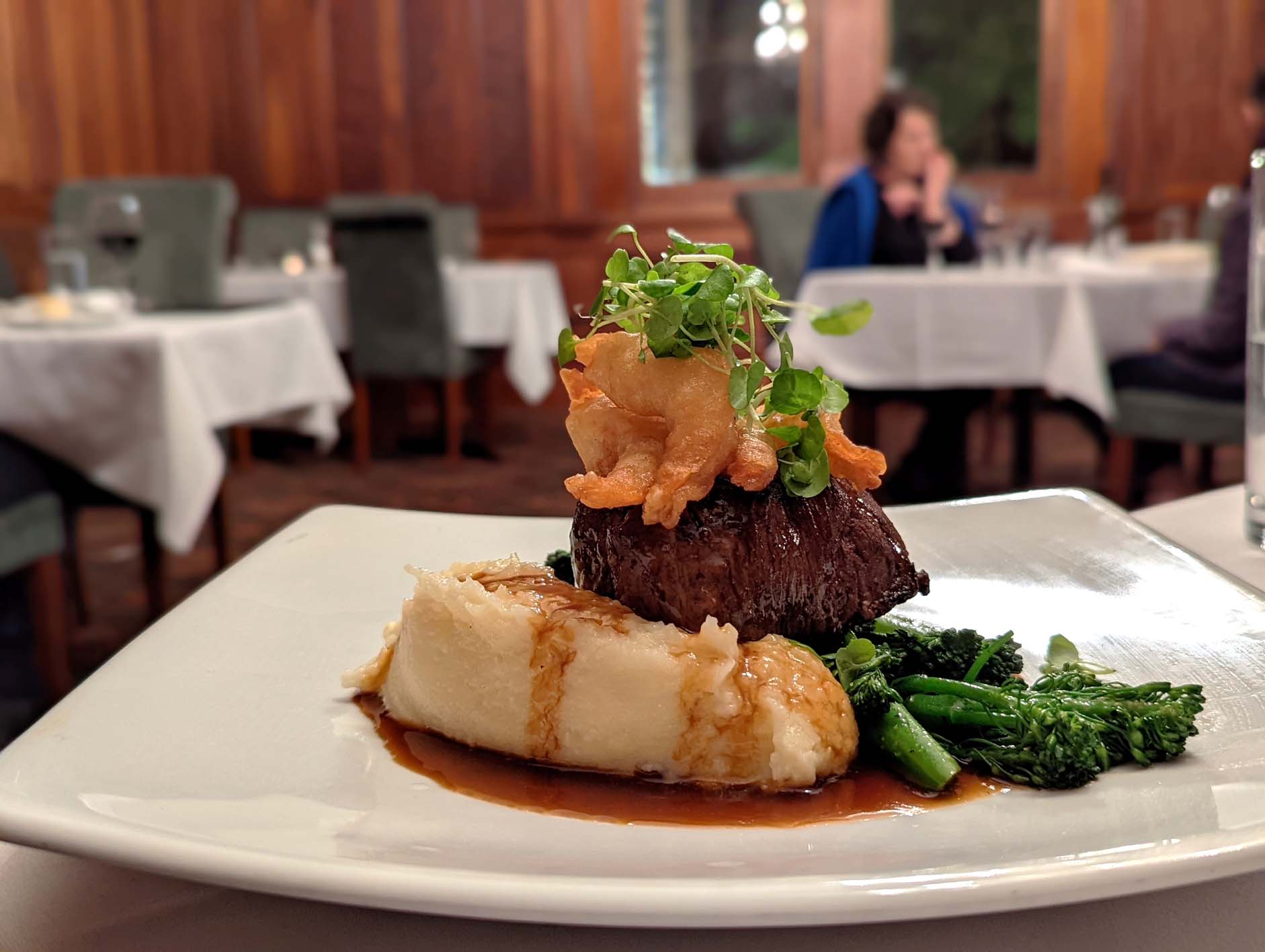
Owned since 2002 by the Cooper family, Woodlands of Marburg has been reopened to the public, offering boutique accommodation, tours and dining experiences. It is also used as a wedding and event centre.
We were thrilled to help celebrate the first anniversary of the Sugarmill Restaurant in the cedar-panelled dining room. The menu by Chef Tracy Van den berg features classic favourites with an Asian twist. We dine surrounded by locals and tourists quietly celebrating in elegant surrounds with friendly service from staff. As we wander around the grounds in the morning after breakfast at the Tommy Smith Café, we can’t help but be amazed at the amazing vision and enterprise that marked the pioneering spirit.
Providing a glimpse back through history, the microcosm of Marburg offers us a unique look at Australia through one tiny town.
